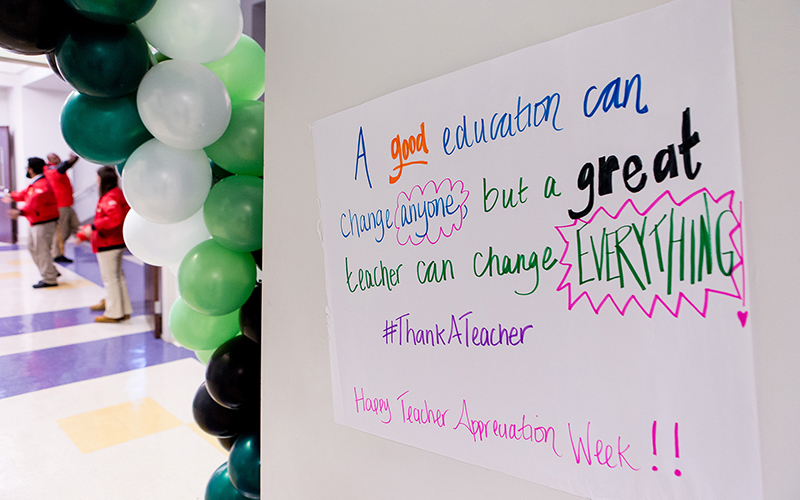
New U.S. Department of Education regulations aim to hold schools of education accountable for how well their graduates are prepared to teach. (Photo courtesy U.S. Department of Education)
WASHINGTON – For years, the U.S. Department of Education has rated teachers’ success based on how well their students performed on tests. Now, it wants to take a step back and evaluate how teachers are taught to teach.
The department on Wednesday released new regulations aimed at assessing education colleges and programs that prepare teachers for their careers, with the goal of holding them accountable for the quality of their graduates.
Arizona officials were still combing through the 695-page document Thursday, but said they generally welcome the intent of the rules that will be phased in over the next five years, beginning with this school year.
“Ensuring programs prepare teachers fully, and graduates understand the challenges they may face is a key to giving young and new educators those tools to be successful,” said Alexis Susdorf, a spokeswoman for the Arizona Department of Education.
The department’s Educator Retention and Recruitment Task Force reported in January that the teacher shortage in Arizona has reached crisis levels. Nationally, 46 percent of teachers leave the profession after the first five years on the job, according to the National Commission on Teaching and America’s Future.
“Teacher retention is a big problem for our state and nation,” Susdorf said. “And so getting to the root of why these new teachers aren’t feeling prepared is important.”
Beginning this year, states will have to design criteria for categorizing teacher training programs as effective, at-risk or low-performing. Low-performing programs will be ineligible for federal TEACH grants starting in 2021. The Teacher Education Assistance for College and Higher Education, or TEACH, grants award up to $4,000 per year to potential teachers who agree to teach in high-needs schools after graduation.
A 2014 draft of these regulations ran into stiff opposition from educators, because it tied a program’s success to the academic success of the students of its alumni.
“Some felt this was bad news for programs who sent teachers to high-need areas,” said Carole Basile, dean of the Mary Lou Fulton Teachers College. “But we applaud the department for listening to comments and concerns and rewriting these standards.”
The new regulations give states flexibility when deciding how to evaluate teacher preparation programs. Susdorf said the Arizona department will likely “gather and report employer satisfaction based on standardized surveys.”
The Fulton Teachers College has been collecting this type of data on its graduates since fall 2011, and Basile said it has greatly shaped how the college teaches future teachers.
“We’ve really been working hard to bridge the gap between teacher training programs and what K-12 schools actually need,” Basile said.
She welcomed the new standards, which she said are meant “to rein in programs that do not support their graduates and do not equip teachers with the skills they need,” Basile said.
But not all educators are as welcoming. American Federation of Teachers President Randi Weingarten said in a prepared statement that she was “concerned that these regulation amount to another unfunded mandate for the states.”
She predicted the program will become a “burden for states across the country, forcing them to divert scarce funds that could be used to carry out the very interventions that students need from their higher education and K-12 systems.”
State educators are still trying to assess is the cost of implementing the new rules and regulations, which has already emerged as one of the main critiques.
The federal department estimates the rules would cost $27 million nationwide over the next 10 years, but critics point to a 2014 California Department of Education letter that put the cost for just that state at more than $485 million annually.
Whatever the cost, Basile says it’s a necessary step.
“Every single educator preparation institution is responsible for the quality of the teachers that are going into schools,” said Basile. “Because they are responsible for our future.”